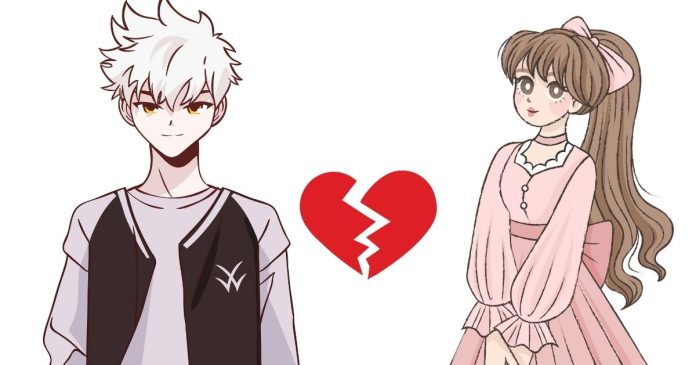In the realm of pop culture, internet slang, and fandoms, abbreviations often come and go. Some fade into obscurity, while others take on new meanings and evolve over time. One such abbreviation that has gained widespread attention is NTR. If you’ve come across this term, whether in anime, social media, or casual conversations, you might be wondering, What does NTR mean?
Let’s dive into the meaning, origins, and usage of NTR.
The Meaning of NTR: “Netorare”
At its core, NTR stands for Netorare (寝取られ), a Japanese term that directly translates to “cuckold” or “adultery.” It is most often used in the context of anime, manga, or video games to describe a specific genre or theme. The concept centers around a narrative in which a character, often a male protagonist, is romantically or sexually betrayed by a partner, typically by someone who takes away their significant other.
The plotline usually involves a love triangle, where the protagonist’s partner is seduced or coerced into a relationship with another person, leaving the protagonist feeling powerless, jealous, and devastated. The emotional turmoil and sense of betrayal are key elements that define the genre. While NTR can sometimes feature explicit content, its primary focus is on the psychological and emotional impact of infidelity.
NTR in Pop Culture and Media
NTR is primarily associated with adult-oriented anime, manga, and video games. The genre has a specific audience, often appealing to those who enjoy intense emotional drama and complex relationship dynamics. It’s essential to note that NTR content is quite niche and may not be suitable for all viewers, as it tends to explore themes of jealousy, humiliation, and emotional distress.
Though rooted in Japan, NTR has spread internationally, especially within fan communities that follow anime and manga. The term has transcended its original meaning, and its use has expanded beyond just the media. On social media, people may use NTR as shorthand to describe any situation where one person is “cheated on” or betrayed in a romantic relationship.
The Evolution of NTR: From Genre to Meme
In recent years, NTR has also morphed into a more widespread meme or cultural reference in internet communities. It is sometimes used humorously or ironically to describe situations where one person feels “cucked” or left behind. For example, someone might joke about how they were left out of an event or decision, likening their experience to the betrayal seen in NTR plots.
It’s important to understand that while NTR has certain negative connotations in its traditional usage, its shift toward internet humor has softened its impact. It’s not always intended to be taken seriously, and often it’s used in a playful or exaggerated manner.
Criticism and Controversy
As with any genre that deals with sensitive themes, NTR has garnered its share of controversy. Some critics argue that the portrayal of infidelity and the emotional suffering it causes can be harmful or distressing. The genre has been criticized for glorifying toxic relationship dynamics and focusing on the humiliation of one character at the expense of another.
On the other hand, supporters of NTR view it as a niche form of storytelling that explores complex emotions and relationship struggles. They appreciate its focus on the psychological aspects of love, jealousy, and betrayal, which can add depth to a narrative.
Is NTR Just About Betrayal?
While betrayal is central to NTR, the genre can also delve into other themes like emotional vulnerability, loss of trust, and power dynamics in relationships. It’s not always about the act of cheating itself, but the emotional fallout that comes from it. In some cases, NTR stories can be seen as an exploration of personal growth or the consequences of actions in a relationship.
However, it is important to remember that NTR is not a genre for everyone. For those who enjoy emotionally intense narratives or stories that challenge traditional romantic tropes, NTR can offer a unique experience. But for others, the themes of betrayal and suffering may be too much to handle, and they may prefer lighter or more optimistic genres.
NTR Outside of Entertainment: A Broader Social Context
The term NTR has made its way beyond the realms of anime, manga, and adult entertainment. On social media platforms like Twitter or Reddit, the abbreviation might be used in contexts that have nothing to do with media consumption but instead refer to personal relationships or situations where someone feels they have been “cheated” or “left behind.”
In fact, some people may use NTR as a shorthand expression for feeling slighted or abandoned, whether it’s in the context of a group activity, workplace dynamics, or personal relationships. In these cases, the use of NTR is more about capturing the emotional frustration or sense of being out of control, rather than focusing on betrayal in a romantic sense.
Conclusion: Understanding the Nuances of NTR
NTR is a multifaceted term with roots in Japanese media, but its significance and usage have expanded over time. Whether you’re encountering it in anime, internet memes, or personal conversations, it’s important to be mindful of the context in which it’s used. While NTR can be a provocative and emotionally intense genre, it also has its place in certain forms of online humor and cultural commentary.
Ultimately, NTR represents a complex exploration of emotions like betrayal, jealousy, and vulnerability. While the term may have a negative connotation, it’s not simply about the act of cheating—it’s about the emotional repercussions and the complicated dynamics that follow.
As with any niche genre or internet slang, it’s crucial to approach NTR with an understanding of its varied meanings and contexts. Whether you’re a fan of the genre or just someone curious about the term, knowing its significance can help you navigate its use with greater clarity.



